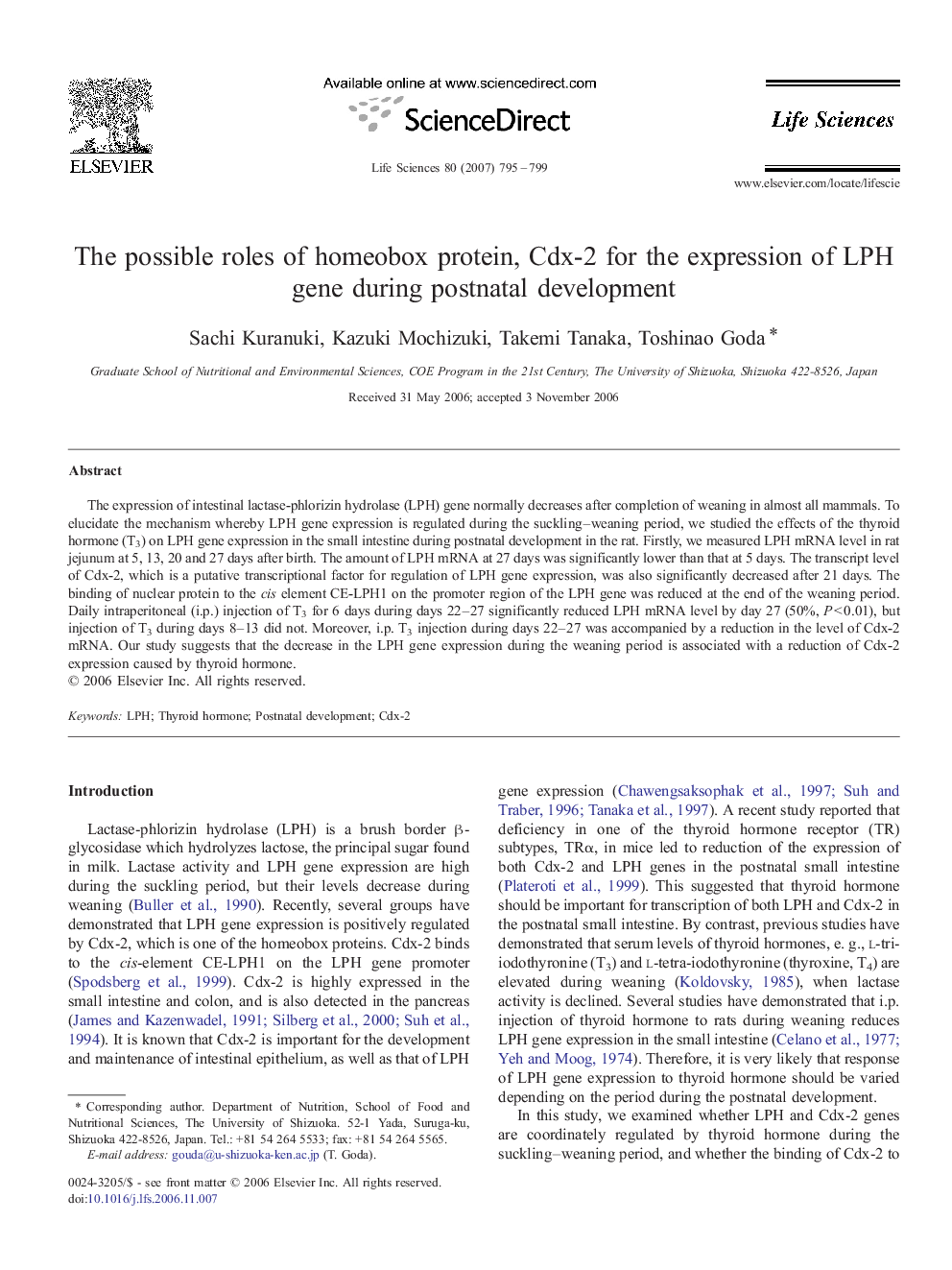| Article ID | Journal | Published Year | Pages | File Type |
|---|---|---|---|---|
| 2553462 | Life Sciences | 2007 | 5 Pages |
The expression of intestinal lactase-phlorizin hydrolase (LPH) gene normally decreases after completion of weaning in almost all mammals. To elucidate the mechanism whereby LPH gene expression is regulated during the suckling–weaning period, we studied the effects of the thyroid hormone (T3) on LPH gene expression in the small intestine during postnatal development in the rat. Firstly, we measured LPH mRNA level in rat jejunum at 5, 13, 20 and 27 days after birth. The amount of LPH mRNA at 27 days was significantly lower than that at 5 days. The transcript level of Cdx-2, which is a putative transcriptional factor for regulation of LPH gene expression, was also significantly decreased after 21 days. The binding of nuclear protein to the cis element CE-LPH1 on the promoter region of the LPH gene was reduced at the end of the weaning period. Daily intraperitoneal (i.p.) injection of T3 for 6 days during days 22–27 significantly reduced LPH mRNA level by day 27 (50%, P < 0.01), but injection of T3 during days 8–13 did not. Moreover, i.p. T3 injection during days 22–27 was accompanied by a reduction in the level of Cdx-2 mRNA. Our study suggests that the decrease in the LPH gene expression during the weaning period is associated with a reduction of Cdx-2 expression caused by thyroid hormone.
